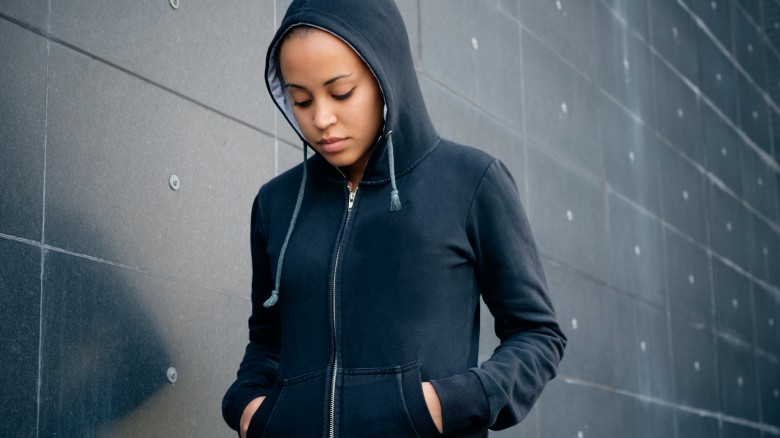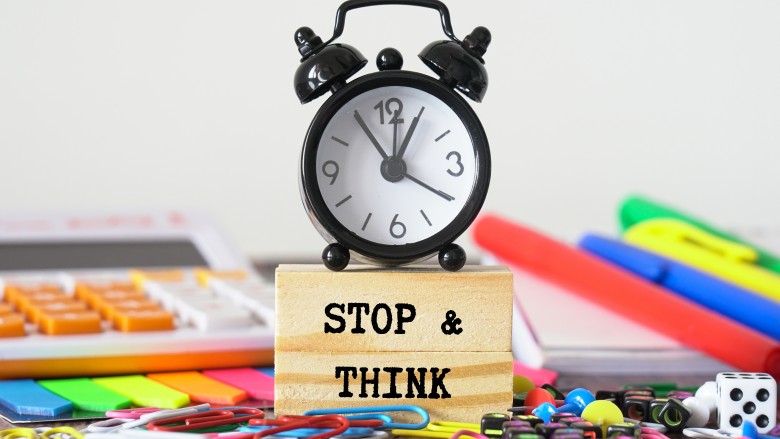Things I Learned In College That Can't Be Found In A Textbook
Four years, one degree, and thousands of dollars in debt later... college taught me algorithms, poetry, history and how to grow bacteria. Mostly all of which I already forget, but college also taught me major life skills and lessons that I could never find in one of my textbooks. College taught me how to stay true to myself, but also grow as an individual in the most beneficial – yet occasionally chaotic – fashion. These different skills I acquired over the years and lessons that I learned helped me seamlessly transition into the real world after college.
Time management will make or break you
Lesson number one: managing my time wisely. But how could I find time to balance school work, clubs, a job, bills and a social life? Time management and a very organized planner. This means prioritizing, which correlates with time management. In high school, I was emphatic about getting good grades, and they came pretty easily. But I slowly watched that slip away my freshman year in college.
I learned that I actually needed to study and put the energy into my grades. I eventually made the time to study and get assignments done, but it wasn't until my grades started to sink a little. I was a little more interested in my social life in the beginning, considering I was meeting new faces every single day. Freshman year, I was forced to take a Friday class, but I decided that didn't mean Thirsty Thursday was out. It meant being fully awake at my 8 am class was put on the back burner.
So, I had to ask myself this — "Why are you here?" and that's where I found my balance. It took me a while to get my priorities in check. Heck, it just about took me until senior year to really figure it out. But that was okay, because I learned how to make time for important things, like school work and an internship — things I didn't always want to do, but I decided they were worthwhile because they could be helpful in the long run.
Strong friendships are not the easiest thing to maintain
I learned that people come and go all. of. the. time. I transitioned through various priorities in college, and my group of friends changed along with those shifts. Once I wasn't interested in something anymore, it wasn't hard to find a new group of friends that shared my interests.
It was difficult to find consistency with my interests, so I would try a lot of new things, such as trying out different clubs. I did these things on my own, despite what my group of friends were doing at the time. This would cause me to stray away from one group and meet new people in the next. I didn't find it cliquey in college — at least not like it was in high school. You're not stuck seeing the same people every day in college like you do in high school, so it's easy to bounce around from friend group to friend group.
Once I found my niche, I learned that a real friend isn't necessarily someone with the same priorities as me, but rather someone who actually cares about what I'm doing, simply because I'm the one doing it. They were the ones who encouraged me to do whatever I felt I needed to better myself. They were people I didn't need to stray away from.
The freshman 15 is not just for freshman
This one is a biggie. Just because pizza places would deliver right to my dorm and there were sugary temptations all over campus, didn't mean I needed to eat them — but I did. Money was tight and so was my time, which would cause me to look for the quickest and cheapest form of energy. Boy, did that really start to effect my weight. I remembered hearing that it's more about what you eat than it is how much you workout, but clearly that was going in one ear and out the other. Don't ignore this advice.
I was working out and not seeing a difference. I was still gaining weight because of the late night pizza parties after the long nights full of drinking empty calories. Only when I moved off campus, where I had my own kitchen, did I really start to focus on changing this habit.
Once I buckled down on some new eating habits, I took more time to be active. Being physically active can benefit you mentally just as much as physically, at least for me it did. I remember going to the gym before having to be at an exam and performing better just because I was feeling good about my body, and I had more energy.
If you have the opportunity to live with a stranger, do it
My first experience living with a stranger was pretty intense — we were sharing a dorm room that felt like a 4x4 closet, not to mention the fact that we were sharing a bathroom with six other girls. My comfort zone was completely compromised, but I found out it wasn't necessarily a bad thing. I opened up to letting someone else see my daily routines, my annoying habits, and some of my most insecure moments. This made me realize I'm only human, and I shouldn't be embarrassed about some of these more personal moments, because everyone has them. Until you've lived with someone, you really don't know them as well as you think you do. You'll see a whole different side of them when they're most vulnerable, and in a new environment.
It wasn't until I moved into a house right off campus that I really learned what it meant to open up. Sharing the responsibility of a home with people you barely know is a great way to learn things about yourself. I learned about my tolerance levels, I learned how to cope with someone else's habits, how to respect the way other people live, and, most importantly, I learned how to communicate effectively. Sometimes you need to agree to disagree, and that's perfectly okay. You're bound to have clashing ideas in a house full of different mindsets.
Grow thick skin
After years of being friends with the same kids from elementary school to high school, I learned how much it really meant to be able to count on someone. When I was in high school, my friends were almost always there when I needed them. After I left home for college, it seemed like they all disappeared.
I started fresh, not really knowing how much to trust people and how much to rely on others for support when I needed a helping hand. I didn't know who was actually listening and who cared when I needed to vent about an annoying girl in class. There were literally thousands of people around me every single day, but despite all of those people, I felt lonely at times. My mom and dad were just a phone call away, but having someone there with me always felt better.
That's when I learned to start to grow some thicker skin. I learned to rely on myself, to have my own back and to look out for me when I needed to. I learned how to take a hit, because college was full of stressful and tough circumstances. Having thick skin helped make me a stronger person and helped me bounce back whenever something bad would happen.
There are real-life consequences to your mistakes, without warnings
College really taught me to think about cause and effect. What is going to happen to me if I decide to do this? It was not an easy skill to learn. I repeated a lot of the same mistakes before I finally learned it was on me to get it together.
There wasn't anyone around who had my best interests at heart to save me before I made any monumental mistakes, but that wasn't an excuse for me to continue making them. I had to step it up, be responsible and actually think before I did something.
I learned to do this in college because I suffered real-life consequences from my own decisions, both positive and negative. And the negative consequences weren't just a slap on the wrist, or it's okay, you didn't know any better kind of conversations. They were more like, you're probably going to get kicked off the tennis team or you're going to get arrested. There wasn't anyone sternly warning me this is a bad idea, but there was definitely someone telling me what was going to happen after I made the mistake — and at that point, it was too late.
Utilize your resources, and don't be afraid to ask for help
Colleges and universities offer so many different resources to their students to help them succeed during their time in school. Did someone sit me down and tell me they were there? Not quite. I had to take the initiative to seek out whatever resources and information I needed. Once I realized I was struggling to get as much out of college as I had hoped, I learned to ask the right people the right questions.
One of the most important things I learned about college was that my best resource was my advisor. I had both an advisor and a mentor. Employees at my university were there to help me and share their knowledge, so why not get them to? They were able pull some strings to get me into certain classes I couldn't get into on my own, and even gave me some inside information on internships and jobs. But I would have never gotten any of it if I didn't ask. As far as college work, assignments, and general advice on school and furthering my career, I didn't need to figure out how to do it all on my own.
Networking is an important skill during and after college
Building my network while in college was so important because I was able to maintain and keep building once I was out. I was surrounded by people in field every day — professors with resources and experience, and students who are going into the same field as me. These are all people who I may end up working with someday. It's about who you know as much as it's about what you know. So, I learned to know people, know everyone, and know that someday, even just knowing them could lead to a great opportunity.
It's an exciting world beyond home
I went to a pretty diverse university. Students came from all over the world, and I learned that it's okay to be different because we all have totally different definitions of "normal". When I was in high school, there was really no diversity. There was a cool way to dress, a cool way to act, a cool way to speak, and a cool way to be cool. When I went to college, I was thrust into this new world filled with diversity, which helped me become more cultured and open-minded. The experience strengthened my understanding of why others do the things that are different than what I would do. It also gave me the opportunity to dress how I wanted, talk how I wanted, act how I wanted, and decide what exactly I thought was cool. It opened my eyes to a whole new perspective of acceptance and living.
What happens in college doesn't stay in college if you post it on social media
I learned to be mindful of my social media presence, especially while in college. It's not Vegas. Nothing stayed there, especially when I put it online. What happened to me in college definitely followed me out, the good and the bad. I have always wanted to be portrayed in the best light possible, but sometimes I wouldn't think about the picture of me doing shots at the bar and how it probably wasn't the best thing to post on Instagram. It's not even just about what I would post a lot of the time, but what other people would post with me in it.
Now, as a reporter, my followers and bosses want to follow me on all of my social media platforms — knowing I have not-so-professional pictures from college on a few of them, I had to go back and delete some of them, and even create new accounts. I figured out the hard way that every social media post will follow me forever.










